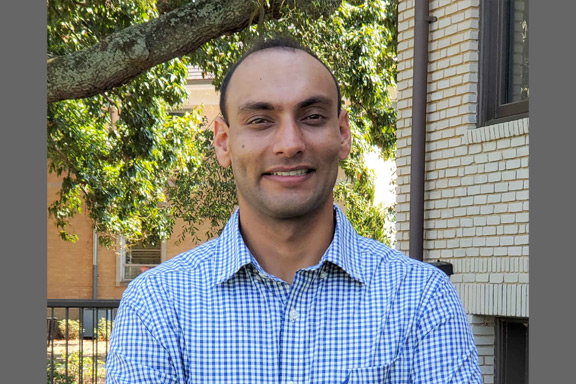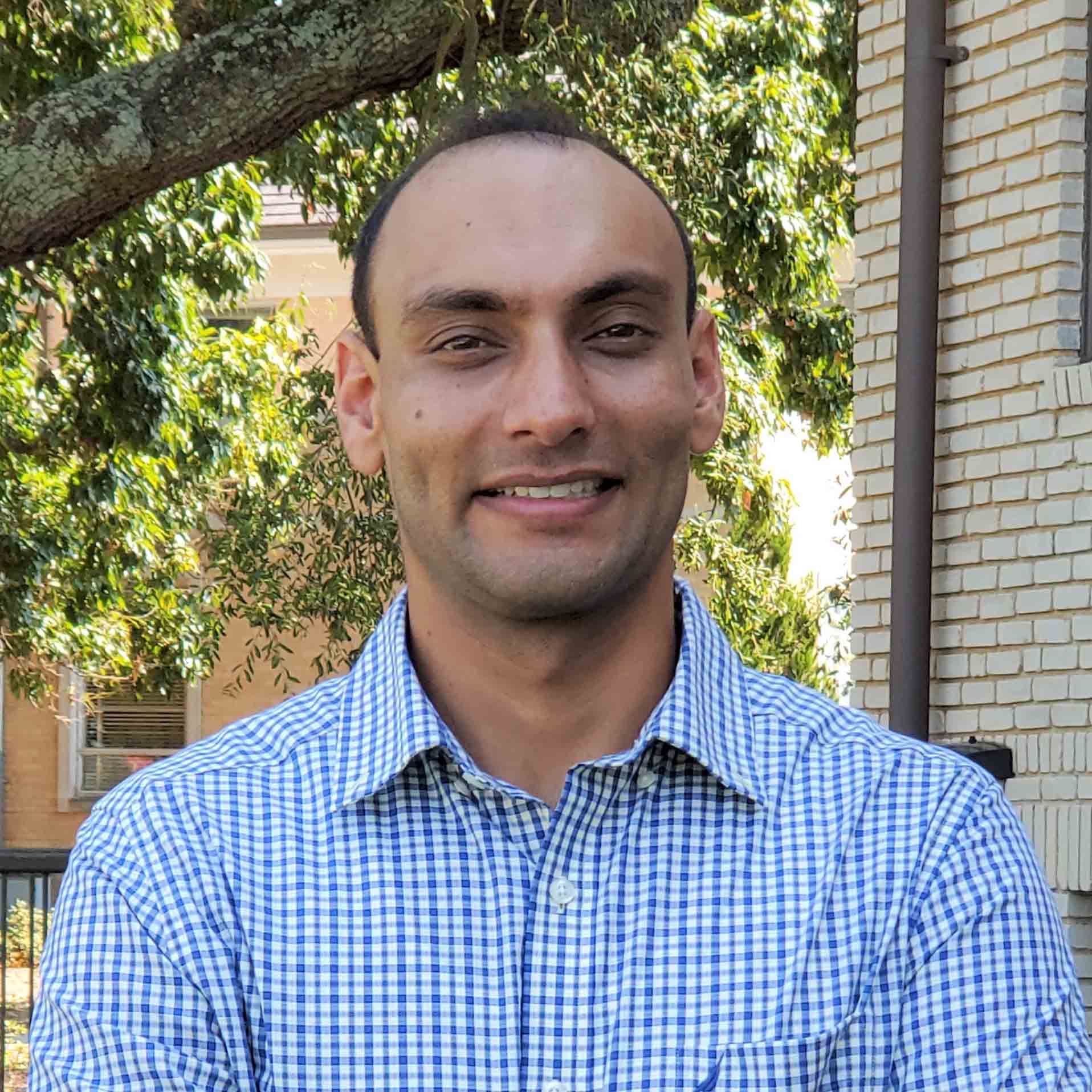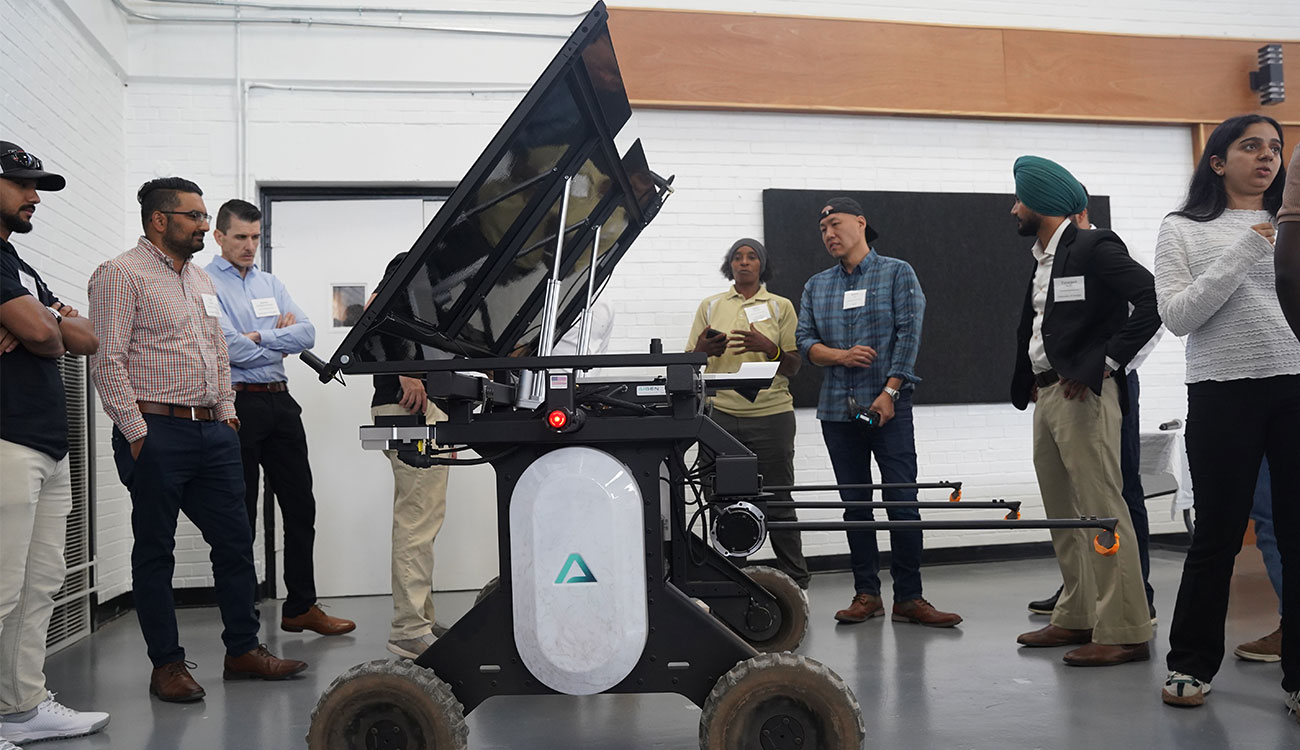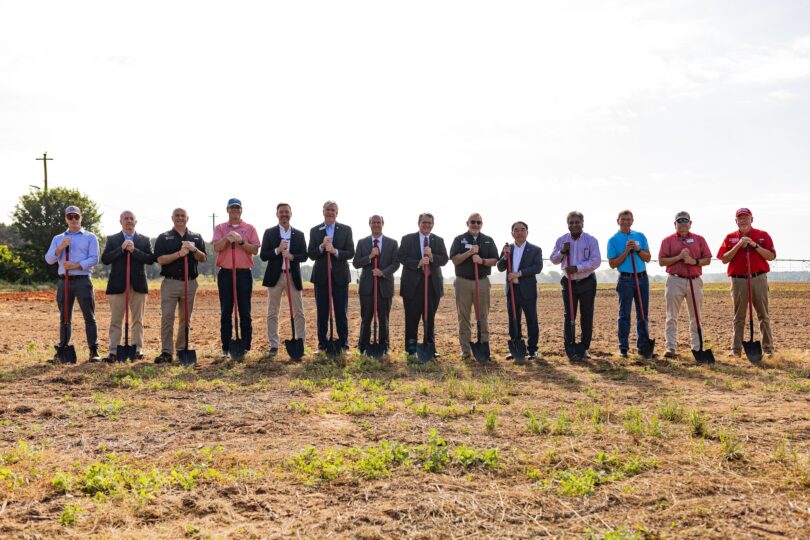Georgia producers have a new precision agriculture resource to enhance productivity on their farms.
Simerjeet “Simer” Virk, who has served as a research engineer in the University of Georgia’s College of Agricultural and Environmental Sciences since 2016, is now an assistant professor on UGA’s Tifton campus in the Department of Crop and Soil Sciences. He earned his doctorate in agricultural and biological engineering earlier this year from UGA’s College of Engineering.
Virk, who brings a decade of experience to this new position, will focus on advancing the adoption and proper implementation of precision agriculture technology and data management tools as a specialist with UGA Cooperative Extension, but he will also conduct applied research on UGA farms and with farmers in different production regions throughout Georgia.
“Dr. Virk is well known on our campus for his technical savvy and easygoing attitude,” said Michael Toews, assistant dean at UGA-Tifton. “Georgia growers are getting a true partner to assist with adopting cutting-edge technologies that improve their productivity and profitability.”
Virk will continue working with fellow UGA faculty including precision agriculture researchers George Vellidis, Wesley Porter and Calvin Perry, who are making strides in the adoption of technology including variable-rate irrigation and planting technology. Virk hopes to capitalize on progress in these areas and expand to variable-rate technology for fertilizer application, sprayer control systems and nozzle technology, yield monitoring systems, and data management tools and techniques.
Technology has evolved tremendously over the last decade and current tools allow producers to make timely and critical decisions in the growing season that can affect their bottom line.
A technology enthusiast and certified drone pilot, Virk says drones are rapidly becoming a go-to remote sensing tool for many researchers and consultants. He sees potential for growth in this area, especially in spot spraying applications. Artificial intelligence and data analytics are also advancing at a rapid pace, and robotics, automation, machine learning and the Internet of Things are being incorporated into precision agriculture. The industry is already in the next phase of precision agriculture, or “digital agriculture,” where field and machinery data is constantly collected and used for making real-time management decisions.
“I believe that almost every farmer can benefit from basic precision ag technologies such as GPS and guidance,” said Virk. “From there, I see precision ag as a toolbox full of different technology and data management tools, but not every grower will need all of those tools. Depending on farm size and operations, he may only need the tools that will serve his operations the best and make farming profitable. Precision ag is not a one-size-fits-all approach for every farm and operation. Instead, you have to pick and choose which technology and practices will fit best into your operation.”
Virk plans to take a two-pronged approach to promote these tools. For growers who are already using some technology, he wants to ensure that they are using it effectively to maximize productivity. For growers looking to get started or advance to the next level, he wants to ensure that they are ready to take the leap and have the information they need to make the right choices.
Addressing barriers to technology adoption will also be critical, said Virk, who will be working with other specialists and educating Extension agents on options available to growers and effective utilization of data so they can make smart “precision decisions” for their crop production.
“Some of these technologies are not straightforward,” he said. “That’s where I see my position playing a critical role — educating and training our agents about the principles and workings of technology so they are prepared to help growers with their questions or issues related to its use or adoption. We have one of the best Extension systems and some of the best agents in the country who are eager to learn about new technologies and are willing to help growers in every possible way.”
Virk is aware that the cost of adopting and implementing precision agriculture technologies can be significant, but he emphasizes the benefits and return on investment these technologies can provide for producers.
“As researchers, it’s important for us to consider the economics of the technology adoption when evaluating and testing different technology options for growers,” he said. “There are some options that won’t fit a certain production system, so it’s important to be cautious before jumping in and investing in something brand new in the market. Growers should give new technologies at least one year or so for it to be field-tested by the industry before making an investment decision.”
Virk said precision agriculture technologies have the potential for application beyond row crops. Specialty and vegetable crops are high-value commodities and Virk plans to partner with specialists in these production areas to identify the appropriate technologies. He’s also working with UGA beef and forage specialists who have realized the potential for technology education and adoption in hay and forage production.
While it is unclear how many Georgia farmers are currently using precision agriculture technologies, Virk hopes to get a better handle on what farmers are currently using now and where they want to go in the future.
“I hope to work with our agents, industry and commodity commissions to get a baseline of where we’re at now through grower surveys and meetings so we can track those numbers in the next few years and be able to evaluate the program’s impact,” Virk said.
To get timely updates on his work, follow the UGA precision agriculture team on social media at @GAPrecisionAg on Facebook and Twitter.








